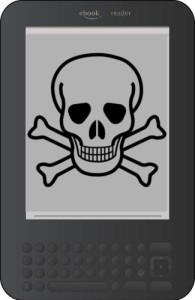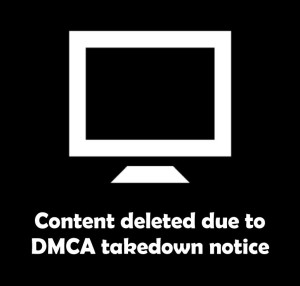 Pirate websites are among the banes of the indie author – and of traditionally-published authors, as well. But the Authors Guild, of all organizations, has suggested a fix.
Pirate websites are among the banes of the indie author – and of traditionally-published authors, as well. But the Authors Guild, of all organizations, has suggested a fix.
The move comes as the House Judiciary Committee is looking into a possible overhaul of U.S. copyright law. First, the basics: Copyright is different from publishing rights. In the United States, for works created after January 1, 1978, the creator of the work holds the copyright for his or her lifetime plus 70 years. You, as the copyright holder, may sell various types of publication rights – including film rights and foreign language rights – to others. But you’re not selling them your copyright. What you’re doing, in effect, is giving them a license to market the work you created and own. They then share the profits with you.
The difference with a pirate site is there’s no profit-sharing. Continue reading ““And Stay Down!”: Tweaking the DCMA”

 You’ve published your book, and as many authors do, you Google it periodically to see where it might pop up. Is it on Barnes and Noble yet? How about Kobo? As you scan the search results an unfamiliar site stands out. We’ll call it IStealBooks.com. (At the time of this writing, that wasn’t a real website. Let’s hope it’s still not.)
You’ve published your book, and as many authors do, you Google it periodically to see where it might pop up. Is it on Barnes and Noble yet? How about Kobo? As you scan the search results an unfamiliar site stands out. We’ll call it IStealBooks.com. (At the time of this writing, that wasn’t a real website. Let’s hope it’s still not.) Preface: The other day a Google alert informed me that my first novel, Lust for Danger, was mentioned on a site called 4shared.com. I clicked through to discover that they were offering my novel as a free download. I immediately emailed my Indie Publisher, Write Words Inc., to notify them of this issue. Within a couple of days they’d managed to get the site to take my book down. Honestly, I never thought this would happen to me. But it did. Arline Chase – owner of Write Words, Inc. – will explain why, and how, pirates steal our titles.
Preface: The other day a Google alert informed me that my first novel, Lust for Danger, was mentioned on a site called 4shared.com. I clicked through to discover that they were offering my novel as a free download. I immediately emailed my Indie Publisher, Write Words Inc., to notify them of this issue. Within a couple of days they’d managed to get the site to take my book down. Honestly, I never thought this would happen to me. But it did. Arline Chase – owner of Write Words, Inc. – will explain why, and how, pirates steal our titles.